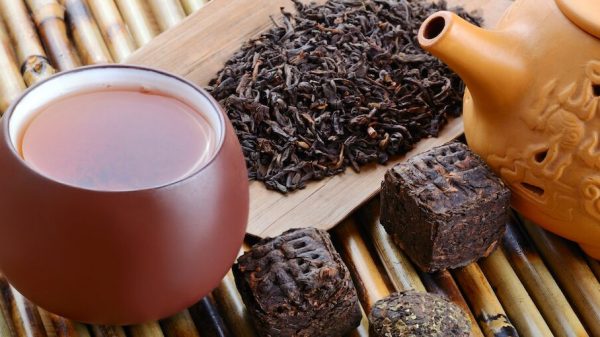
Chai tea is generally safe during pregnancy when consumed in moderation. Always consult a healthcare provider before adding it to your diet.
Chai tea, steeped in rich cultural history, offers a warm, aromatic experience loved by many. Originating from India, this flavorful beverage blends black tea with a symphony of spices like cinnamon, cardamom, and cloves. Enjoyed globally, chai not only warms the senses but also invites a sense of comfort with each sip.
Pregnant individuals often seek out safe and soothing drink options, and chai can be a delightful choice. With its moderate caffeine content and the potential benefits of its spices, it’s a popular alternative to coffee for those expecting. However, it’s key to pay close attention to the ingredients and caffeine levels, as some chai tea blends may contain herbs that are not recommended for pregnant women. The delicate balance of nourishment and flavor makes chai tea a potential addition to a pregnancy diet, provided caution is exercised and a medical professional is consulted.

Chai tea is a traditional Indian beverage known for its warming spices and black tea base. Made by brewing black tea with a distinctive mixture of spices such as cardamom, cinnamon, ginger, cloves, and black peppercorns, this aromatic drink has gained worldwide popularity. It’s not uncommon to find that milk and sweeteners like sugar or honey are included to create a soothing and flavorful experience.
Diverse variations of chai tea can be found globally, with recipes adapted to local tastes and available ingredients. Some may opt for alternative milks, such as almond, coconut, or soy, for a different texture or dietary preference. Others might emphasize certain spices over others or add unique elements like vanilla, nutmeg, or star anise to create bespoke blends.
| Ingredients | Common Variations |
|---|---|
| Black Tea | Masala Chai |
| Cardamom | Chai Latte |
| Cinnamon | Vanilla Chai |
| Ginger | Chai with alternative milks |
| Cloves | Spiced Chai |
Chai tea, a beloved drink for many, combines black tea with a mixture of aromatic herbs and spices. For expectant mothers, one critical consideration is the caffeine content in chai tea. Typically, chai tea can contain anywhere from 20mg to 80mg of caffeine per cup, depending on how it’s brewed and the black tea used as its base. Pregnant women are generally advised to limit their daily caffeine intake to less than 200mg to reduce the risk of negative health impacts on the fetus.
The herbs and spices in chai tea, such as ginger and cinnamon, are often consumed for their health benefits. However, it is important to consider the quantities and the types of herbs used, as some may not be recommended during pregnancy. Each ingredient’s impact can vary, and consulting with a healthcare provider is essential when considering the consumption of chai tea.
There are both potential risks and benefits to drinking chai tea while pregnant. A moderate amount may offer comfort and potential health advantages, such as nausea relief from ginger. Yet, overconsumption poses risks such as increased heart rate and blood pressure, which are concerns during pregnancy. Balance and moderation are key, and a healthcare professional’s guidance can help ensure safety for both mother and child.
Pregnant women seeking alternatives to chai tea can consider a variety of herbal teas. These teas often lack caffeine and are popular for their potential health benefits and soothing properties. Notably, certain herbs like ginger and peppermint are celebrated for their ability to alleviate morning sickness. It is crucial, however, to select teas that are safe for pregnancy, as some herbs may not be recommended during this time.
Decaffeinated tea options provide an excellent choice for those wanting to enjoy a warm beverage without the caffeine. Decaf black tea or green tea could substitute the chai experience, minus the caffeine-related concerns. Despite the removal of caffeine, these teas still offer a comforting flavor and can be enjoyed with the addition of milk or a non-dairy alternative. Always verify the decaffeination process to ensure no harmful chemicals were used.
Yes, you can have chai while pregnant but limit your intake due to caffeine content and consult your healthcare provider.
Yes, you can drink chai in moderation during pregnancy, but always check with your healthcare provider first.
Pregnant women should generally avoid herbal teas like peppermint, chamomile, and red raspberry leaf, as they can pose risks during pregnancy. Consult your healthcare provider for guidance.
Individuals sensitive to caffeine or tannins should avoid drinking chai tea due to potential adverse effects such as nausea or increased heart rate. Pregnant women should consult with a healthcare provider before consumption.
Navigating the safe consumption of chai tea during pregnancy can be confusing. Remember, moderation is key, and consulting your healthcare provider is crucial. Embrace the comfort chai can offer, but stay informed about the ingredients and caffeine content. Make your health and your baby’s safety your top priority.
Cheers to a happy, healthy pregnancy with every sip taken mindfully.